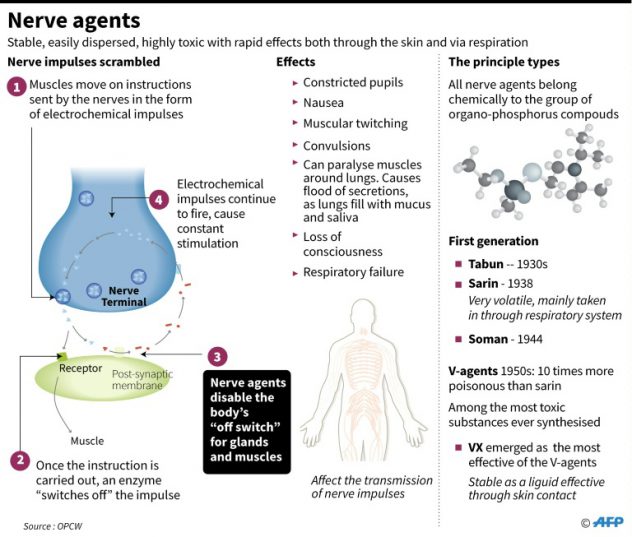Sundowns’ Lebusa – We know what to do
A secretive British army base, which identified the nerve gas used to poison a Russian ex-spy earlier this month, has for years been fuelling conspiracy theories with its pioneering research into chemical and biological weapons.
Located near Salisbury, the southwestern English city where Sergei Skripal, 66, and his 33-year-old daughter were targeted, Porton Down is Britain’s most controversial military facility.
The Defence Science and Technology Laboratory — its official name — employs 3,000 scientists across a sprawling rural site and has an annual budget of £500 million (560 million euros, $695 million).
British Prime Minister Theresa May told lawmakers Monday its “world-leading experts” had positively identified the military-grade nerve agent used as belonging to a group known as “Novichok” and “of a type developed by Russia”.
Porton Down was founded in 1916 to counter German chemical attacks in World War I, which initially involved chlorine and then mustard gas and phosgene.
In the 1950s scientists there developed non-lethal CS gas, better known as tear gas, as well as the deadly nerve agent VX.
Given international conventions that prohibit the use of chemical weapons, research conducted at Porton Down is defensive in nature, Britain’s defence ministry (MoD) says.
The state-of-the-art facility aims only to improve equipment and testing to protect troops and the population, it says.


Facts on nerve agents
In recent years, the laboratory has participated in Ebola research, and has been involved in the fight against the epidemic in Sierra Leone since 2013.
It has also analysed the use of chemical weapons in the Syrian conflict, in particular sarin gas, the British government has previously revealed.
The long history of secrecy surrounding the site has fuelled persistent rumours and conspiracies, including accusations of experiments on animals and humans.
In 1999, police opened a probe into testing that may have endangered the lives of soldiers without their knowledge.
The investigation did not result in criminal prosecutions, but in 2008 the MoD awarded 360 former members of the armed forces compensation of £3 million (3.4 million euros, $4.2 million).
They claimed to have served against their will as guinea pigs in Cold War-era chemical testing, but the ministry did not admit responsibility.
In a June 2016 press release — titled “The truth about Porton Down” — the MoD tried to rebut some of the claims about the site, including that aliens had been taken there and that it had been used to cultivate cannabis.
It outlined the work carried out at the facility, admitting that successful testing “could not, currently, be achieved without the use of animals”.
The laboratory also elaborated on its volunteer programme, under which some 20,000 people have taken part in studies over the decades.
“(It) has always been operated to the highest ethical standards of the day,” the MoD said.
Download our app